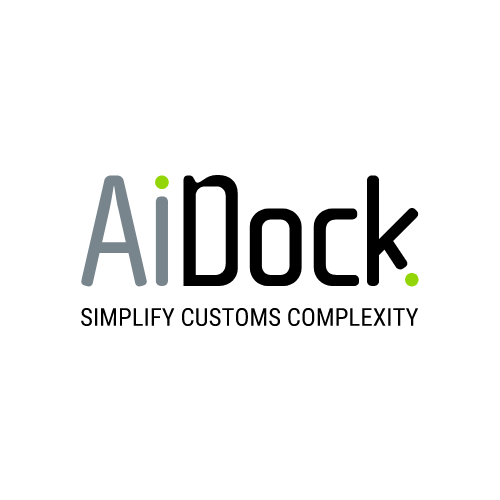Customs practices and policies stand as a cornerstone in the global trading system, serving as the first line of defense for a country’s borders. Beyond the apparent role of enforcing import and export regulations, customs authorities play a pivotal role in facilitating international trade, ensuring economic security, and protecting public health and safety. This introductory section will lay the groundwork for understanding customs’ multifaceted roles, setting the stage for a deeper dive into its benefits that extend far beyond mere compliance with laws and regulations.
Facilitating International Trade
The Gateway for Global Commerce
Customs authorities are not just gatekeepers; they are enablers of global commerce. This section explores how streamlined customs procedures and practices facilitate the smooth flow of goods across borders, essential for maintaining the global supply chain’s efficiency. From implementing advanced electronic data interchange systems to adopting the World Customs Organization’s (WCO) standards, customs agencies worldwide work towards reducing delays and lowering costs for businesses. This part will examine case studies of countries that have successfully modernized their customs operations, showcasing the impact on trade facilitation and economic growth.
Reducing Trade Barriers
Customs plays a significant role in implementing trade agreements and reducing tariff and non-tariff barriers, fostering a more inclusive international trading environment. This section will analyze how customs authorities interpret and apply trade agreements, such as free trade agreements (FTAs), to promote fair and competitive practices. It will also discuss the challenges and opportunities presented by e-commerce and digital trade, highlighting customs’ role in adapting to new business models and facilitating cross-border online transactions.
Economic Security
Safeguarding National Interests
Customs is instrumental in protecting a country’s economic interests, including its critical industries and markets. This section delves into the strategic role of customs in implementing anti-dumping and countervailing duties, safeguard measures, and other trade remedies. By scrutinizing the economic impact of such policies, we’ll explore how customs authorities balance the need to protect domestic industries from unfair trade practices while promoting a fair trading environment.
Revenue Collection and Fiscal Stability
As a significant source of government revenue, customs duties and taxes are vital for maintaining fiscal stability. This part will cover the intricacies of customs revenue collection, including the classification and valuation of goods, and the enforcement of intellectual property rights (IPR) at the border. By examining the mechanisms in place to prevent revenue leakage and combat smuggling and fraud, we’ll understand customs’ crucial role in supporting public services and infrastructure development.
Protecting Public Health and Safety
The Frontline Defense Against Prohibited Goods
Customs authorities are the frontline defense against the entry of prohibited and dangerous goods into a country. This section will discuss the measures and technologies customs use to detect and intercept drugs, weapons, hazardous materials, and counterfeit products. Through interviews with customs officials and analysis of seizure data, we’ll illustrate the challenges customs faces in this domain and the strategies employed to protect citizens and the environment.
Ensuring Product Safety and Compliance
Beyond intercepting illegal goods, customs plays a key role in ensuring that imported products meet local standards for safety and quality. This part will explore the collaboration between customs, health, and safety agencies to implement and enforce product safety regulations, including food safety, consumer product standards, and environmental protections. By highlighting successful interventions and the regulatory framework guiding these efforts, we’ll shed light on customs’ contribution to public welfare.
Enhancing Trade Efficiency and Economic Competitiveness
Streamlining Customs Procedures
This section focuses on the efforts made by customs administrations worldwide to streamline procedures and reduce bureaucratic hurdles, thereby enhancing trade efficiency. It will examine the implementation of single-window systems, which allow traders to submit regulatory documents at a single location, significantly cutting down processing times and costs. The impact of these systems on small and medium-sized enterprises (SMEs), which often face greater challenges in navigating international trade, will be a focal point of discussion.
Leveraging Technology for Smart Borders
The role of technology in transforming customs operations cannot be overstated. This part will explore how customs authorities are leveraging blockchain, artificial intelligence (AI), and the Internet of Things (IoT) to create “smart borders.” These technological advancements not only enhance the security and efficiency of customs processes but also improve transparency and compliance among traders. Case studies of ports and countries at the forefront of adopting these technologies will be highlighted to demonstrate their real-world impact.
Protecting Intellectual Property Rights (IPR) and Fostering Innovation
Combatting Counterfeit Goods
The proliferation of counterfeit goods poses a significant threat to both consumers and legitimate businesses. This section will delve into the strategies customs authorities employ to protect intellectual property rights at the border. By examining partnerships between customs, businesses, and international organizations, we’ll understand how information sharing and cooperation are key to identifying and seizing counterfeit products. The economic and health implications of counterfeit goods, particularly in critical sectors such as pharmaceuticals and automotive parts, will be discussed in detail.
Encouraging Innovation through IPR Protection
Protecting intellectual property rights is not just about combatting counterfeits; it’s also about fostering an environment where innovation can thrive. This part will discuss how effective IPR enforcement by customs authorities encourages investment in research and development, supporting economic growth and technological advancement. The balance between enforcing IPR and facilitating legitimate trade will be analyzed, including the challenges customs faces in this dynamic landscape.
Promoting Environmental Sustainability
Enforcing Environmental Regulations
Customs plays a crucial role in enforcing environmental regulations and protecting biodiversity. This section will cover how customs authorities are involved in the implementation of international environmental agreements, such as the CITES (Convention on International Trade in Endangered Species of Wild Fauna and Flora) and the Basel Convention on the Control of Transboundary Movements of Hazardous Wastes and Their Disposal. The challenges and successes in preventing the illegal trade of endangered species and hazardous waste will be examined.
Supporting Sustainable Trade Practices
Beyond enforcement, customs is also a proponent of sustainable trade practices. This part will explore initiatives aimed at promoting the use of sustainable materials, reducing the carbon footprint of international trade, and encouraging ethical supply chains. The role of customs in facilitating the trade of renewable energy technologies and other goods contributing to environmental sustainability will be highlighted, along with the global efforts to integrate sustainability into trade policies.
Strengthening International Cooperation and Governance
Building Global Partnerships
In an era where trade and security challenges transcend national borders, international cooperation among customs administrations is more critical than ever. This section will analyze the mechanisms and platforms for customs cooperation at the regional and global levels, including the role of the World Customs Organization (WCO) and regional customs unions. The benefits of such cooperation, from harmonizing standards to joint enforcement actions against smuggling and fraud, will be discussed.
Advancing Good Governance and Transparency
The final section before the conclusion will address the imperative of good governance and transparency in customs operations. It will explore the measures taken to combat corruption, enhance accountability, and promote ethical conduct within customs administrations. The impact of transparency on facilitating trade, attracting foreign investment, and building trust among trading partners will be examined, along with the ongoing challenges and the path forward.
Navigating Future Challenges
Adapting to Global Trade Dynamics
The landscape of international trade is continuously evolving, influenced by geopolitical shifts, economic policies, and technological advancements. This section will delve into how customs must adapt to these changes, maintaining the balance between facilitating trade and enforcing regulations. It will explore the implications of emerging trade corridors, digital currencies, and the growing trend of reshoring and nearshoring on customs operations. The challenges of maintaining trade security and efficiency in this dynamic environment will be critically examined.
Leveraging Innovations for Customs Modernization
The future of customs lies in innovation and technology. This part will further discuss the potential of emerging technologies not covered in previous sections, such as 3D printing and autonomous vehicles, and their impact on customs procedures and policies. The discussion will extend to the challenges of data privacy, cybersecurity, and ensuring equitable access to technology for developing countries. The role of customs in fostering an innovation-friendly environment that supports the digitalization of trade will be highlighted.
Looking Ahead: The Future of Customs
Embracing a Customer-Centric Approach
As customs administrations modernize, there is a growing recognition of the need to adopt a more customer-centric approach. This section will discuss the shift towards providing more transparent, efficient, and user-friendly services to traders and the general public. The potential for public-private partnerships to innovate and improve customs services will be explored, along with the importance of stakeholder engagement in shaping future customs policies.
Contributing to Sustainable Development Goals (SDGs)
Finally, the role of customs in contributing to the United Nations Sustainable Development Goals (SDGs) will be examined. This concluding section will highlight how customs’ work in facilitating trade, protecting the environment, and ensuring social wellbeing directly supports the achievement of SDGs. The discussion will extend to the ways customs can integrate sustainability principles into their operations and policies, promoting a more equitable and resilient global trade system.
Simplify Customs complexity
AiDock’s approach to simplifying customs complexity aligns with the broader themes discussed in our article, such as enhancing trade efficiency, promoting economic competitiveness, and protecting intellectual property rights. By automating tasks that are traditionally manual and time-consuming, AiDock contributes to streamlining customs procedures, thereby facilitating international trade. Their AI solutions offer precise document processing, extraction of critical data points, swift and highly accurate classification of HS codes, and robust monitoring and compliance management.
Moreover, AiDock’s innovative use of AI assistants exemplifies the potential of technology to transform customs operations. These assistants perform tasks like labeling documents, extracting information, and providing accurate HS code classifications, which significantly enhances operational efficiency and compliance, while also reducing errors.
AiDock’s vision, as articulated by Co-CEO & Co-Founder Eddie Galantzan, emphasizes the creation of tools that improve workflow and procedures in document processing, thereby enhancing efficiency and ease of use for all involved parties. This vision is critical in today’s fast-paced global trade environment, where efficiency, accuracy, and compliance are paramount.
For those interested in the intersection of customs importance and technological innovation, AiDock offers a compelling case study of how AI and machine learning can be harnessed to address some of the most pressing challenges in the customs and supply chain sectors. Their work represents a significant step forward in the ongoing effort to make global trade more efficient, secure, and compliant.
The World Is Moving, Stay Up To Speed
FAQ
How does AiDock’s AI technology simplify customs complexity for businesses?
AiDock’s AI solutions automate manual and time-consuming tasks involved in customs clearance, such as document processing, data extraction, and classification of HS codes. This simplifies customs procedures, enhances efficiency, and ensures compliance with regulations, ultimately facilitating international trade.
What specific tasks can AiDock’s AI assistants perform in customs operations?
AiDock’s AI assistants perform various tasks, including labeling documents, extracting relevant information, and providing accurate classifications of HS codes. By automating these tasks, they enhance operational efficiency, reduce errors, and support compliance management in customs operations.
What is AiDock’s vision for improving customs operations through technology?
AiDock’s vision, as articulated by Co-CEO & Co-Founder Eddie Galantzan, is to create tools that improve workflow and procedures in document processing, thereby enhancing efficiency and ease of use for all involved parties. This vision aligns with the goal of making global trade more efficient, secure, and compliant.
How AiDock Advances Customs and Supply Chains
AiDock’s innovative use of AI and machine learning represents a significant advancement in addressing the challenges faced by the customs and supply chain sectors. Their solutions streamline processes, improve accuracy, and enhance compliance, ultimately contributing to the efficiency and security of global trade.
Why Stay Updated with Tech Innovations like AiDock’s?
In today’s fast-paced global trade environment, efficiency, accuracy, and compliance are paramount. Staying updated with technological advancements, such as AiDock’s solutions, ensures that businesses remain competitive and can effectively navigate the complexities of customs operations, ultimately contributing to their success in the international marketplace.
AiDock
Let Us Improve Your Customs
Our AI technology can assist with automating import and export paperwork-related tasks. This can significantly reduce the workload and improve results for courier companies, freight forwarders, postal services, and customs authorities. By utilizing advanced machine learning algorithms, AiDock’s AI assistants are capable of labeling documents, extracting information from them, providing accurate HS codes, and streamlining the customs clearance process.





